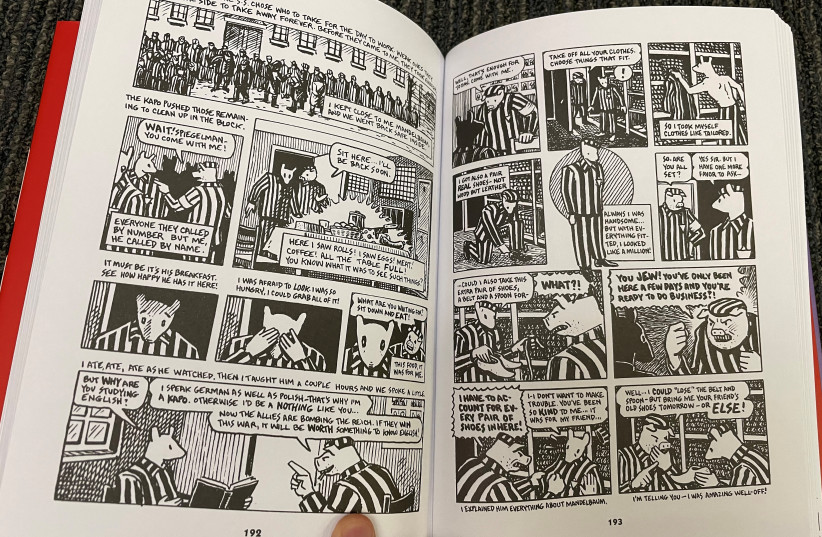The Tennessee banning of Maus was not motivated by antisemitism, Art Spiegelman told New York Magazine on Monday.
In the last month, there has been much discourse surrounding Spiegelman's Pulitzer-winning graphic novel that tells the story of his father Vladek's survival of the Holocaust, depicting the various characters as different animals.
In January, the McMinn county school board in Tennessee banned the book in their school, causing people to protest against what they saw as an act of antisemitism. Following the ban, a number of comic book shops gave out copies of Maus for free, and sales elsewhere spiked with shops everywhere selling out of their copies.
In his interview with New York Magazine, Spiegelman revealed that the reason for the ban was a section of the book that depicted his mother Anja's suicide. Spiegelman depicts scenes where he rages at his dead mother, calling her a "bitch," and his father calling him a "murderer." In a later scene, Spiegelman's father burns his wife's diaries that she had intended Spiegelman to read, leading to him continue cursing at his father.
Mike Cochran, a parent with kids who attend the school, told the school board that "a lot of the cussing had to do with the son cussing out the father, so I don't know how that teaches our kids any kind of ethical stuff."
Spiegelman referred to this, telling New York Magazine that "the thing that really upset them was me yelling at my father for burning the diaries."
"I guess it would've been better, for the school board, to say 'gee whiz. Pop, I wish you hadn't done it!'," he added. "But that wouldn't have been accurate to my intensity of horror."
Spiegelman pointed to an issue of lack of understanding underlying the decision to ban the book. While Christian morals would dictate that the story should have a moral, and the characters should become better people because of it, in Maus "Vladek didn't become better as a result of his suffering."
"They want to teach the Holocaust," Spiegelman told New York Magazine. "They just want a friendlier Holocaust to teach."

